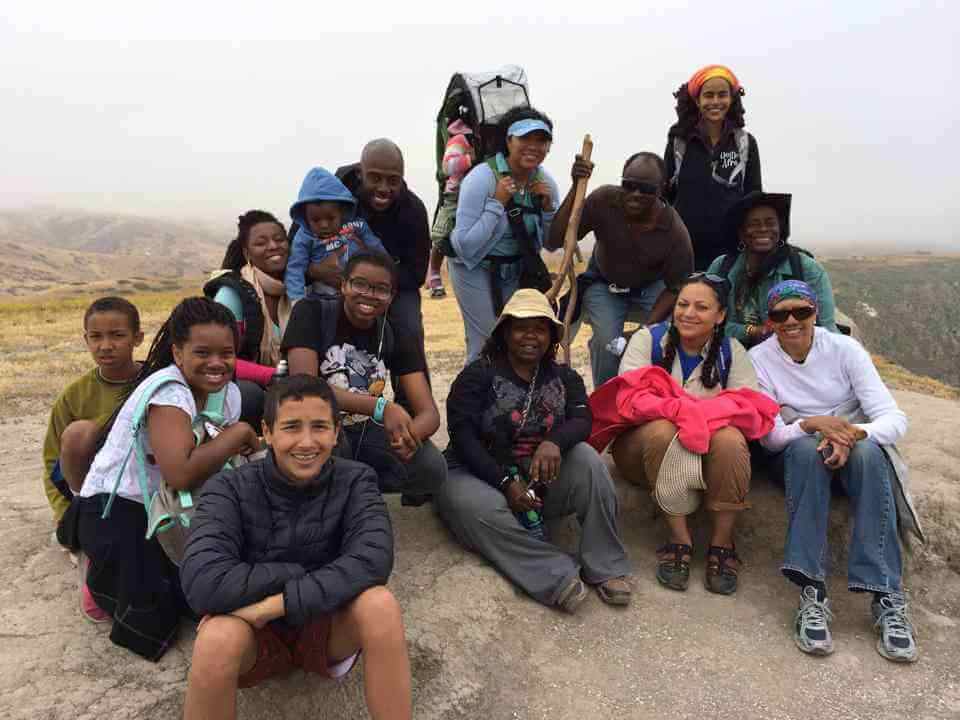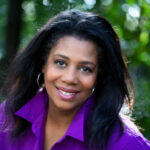When the global pandemic forced widespread shutdown in 2020, Outdoor Afro founder and CEO Rue Mapp had a simple slogan that came to define the work of her organization: “nature never closes.”
Outdoor Afro connects Black families through the experiences of nature in 56 cities throughout the country, inspiring healing, leadership, and ultimately environmental learning through shared outdoor activities. In this week’s article, we interviewed Mapp who discussed the importance of nature in the Black community and the role of Outdoor Afro in introducing new generations of families to the outdoors.
Why is it critical that we inspire Black communities to experience the outdoors?
RM: People grow up and adopt activities that started in their family. We want to replicate that feeling of family in the world where people can join in and learn something new and be empowered to do it on their own.
The programmatic models have often been to take kids from their neighborhoods and go into the wilderness – where they are expected to have a transformational experience – and then come back home and lead their parents to become environmentalists. That narrative doesn’t play in our community. With busy working families, we had to create a model that is what family feels like. Maybe you’ve never had the experience of the outdoors, but if you go out with a supportive group who helps to prepare you there’s a decent chance of having a good time, and the next time you’ll have the knowledge.
What are some of the inherent challenges of the work of Outdoor Afro?
RM: There are aspects of the Black experience that we have to find healing through. The consequences of that are people feeling like there are outdoor activities that are either not safe or welcoming to them. We are deliberate in carving out a safe space for the Black experience in nature – that helps us to be more related and understood. With more than 100 leaders in 56 cities around the country, we connect thousands of people to nature experiences, who are changing the face of conservation. Growing our work can help lead the way for inclusion in outdoor recreation, nature, and conservation for all.
What have the past two years been like for Outdoor Afro/how has the pandemic impacted the work?
RM: Because we were digital natives (Outdoor Afro began as a blog), it was easy for us to pivot into engagement with our community virtually. We relaunched resources, like our Explore Outdoors Toolkit with PBS Kids. We saw this incredible shift to nature and began marketing our “nature never closes” mantra. Even if you can’t get to a park, you can meditate to nature outside your kitchen window; you can tend to the plants inside your home. Ultimately, we are nature. It was helping people to recognize the way nature is who we are and not some place.
What role did Outdoor Afro play during the time of racial unrest?
RM: After George Floyd, and the Christian Cooper incident happened around the same time, there was a tidal wave of recognition and people who wanted to do something. We leaned into our areas of expertise and doubled down on our commitment to Black people getting outside to provide a safe haven. We had already instituted “Healing Hikes” back in 2014, as a way of addressing stress that communities may be feeling, either day-to-day, or responding in a new way to national headlines, especially those involving unarmed Black people. We did them after Ferguson.
There’s been increased conversation around climate change – where does Outdoor Afro fit into that?
RM: When people have experiences in nature that they love it personalizes it for them. If a child doesn’t know how to swim, they aren’t going to be concerned about plastic in the ocean. Too often, we want to rush people to the altar of conservation. We first focus on the relationship people have to have with the outdoors. If they know about these places and have a relationship with them, it will make a difference in their lives and on the voting ballot.
How does your work lead to environmental literacy?
RM: I had a great environmental education growing up in the San Francisco area. In-school education is really important, and youth development knowledge is really important, too. Our theory of change is multi-generational in its scope. For us, it’s more important to give families the toolkit directly. We want people to have a whole community and whole relationship with nature. We love our school programs and our school NGOs We choose to focus on the families.
What does the future hold for you and Outdoor Afro?
RM: I’m excited to be releasing a book this fall, “Nature Swagger: Stories and Visions of Black Joy in the Outdoors. It’s a range of voices from people experiencing the outdoors in different ways. We have 35 people contributing – the youngest is 10 years old, the oldest will be age 100.
As an organization, we are moving into multi-day experiences around nature, which will be more comprehensive and offer black history and even weave in a food component. Also looking for Outdoor Afro land that will ensure a family-oriented environment that by design is racism free. In addition, we are exploring more ways to step into our brand promise and solve problems around gear and equipment. This work, when you strip down all the narrative, is really in the business of transformation. It’s personal, it’s community, and it’s the planet.


